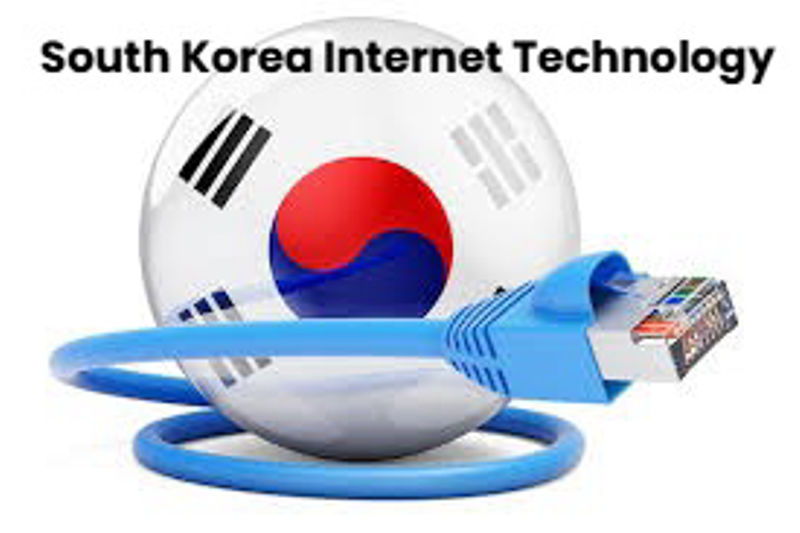South Korea is frequently praised for being a global leader in connection and internet technologies. With its blazingfast internet speeds, widespread 5G adoption, and cuttingedge digital infrastructure, the country consistently ranks among the top nations for technological advancement. But does South Korea truly have the latest internet technology? In this article, we’ll explore South Korea’s internet landscape, its innovations, and how it compares to other techsavvy nations.
The speed of South Korea’s internet technology is among its most remarkable features. For years, the country has dominated global rankings for the fastest average internet speeds. According to Ookla’s Speedtest Global Index, South Korea frequently ranks in the top three for both fixed broadband and mobile internet speeds.
Average Fixed Broadband Speed: Over 200 Mbps (as of recent reports)
5G Speeds: With average speeds in cities surpassing 500 Mbps, South Korea was among the first nations to deploy 5G networks.
This ultrafast connectivity is made possible by extensive fiberoptic networks and government policies that prioritize digital infrastructure.
Early Adoption of 5G Technology
South Korea made history by being the first country to commercially deploy 5G networks in April 2019. Major telecom providers like SK Telecom, KT, and LG Uplus invested heavily in 5G infrastructure, ensuring widespread coverage in major cities like Seoul, Busan, and Incheon.
The primary benefits of 5G in South Korea are as follows:
Enhanced Mobile Experiences: Faster downloads, seamless streaming, and lowlatency gaming.
Smart Cities & IoT Integration: 5G supports smart traffic systems, autonomous vehicles, and connected devices.
Industrial Applications: Factories use 5G for realtime automation and AIdriven logistics.
While other countries are still expanding their 5G networks, South Korea continues to push the boundaries with 5G Advanced and 6G research, ensuring it remains at the forefront of wireless technology.
FiberOptic and WiFi 6 Infrastructure
In addition to mobile networks, South Korea has one of the highest rates of fiberoptic broadband penetration worldwide. Most households and businesses have access to gigabit internet, enabling smooth 4K streaming, cloud computing, and telecommuting.
Additionally, WiFi 6 (802.11ax) is widely deployed in public spaces, universities, and offices, offering faster and more stable wireless connections compared to older WiFi standards.
Innovations in Internet Services
In addition to having fast internet, South Korea is a leader in cutting-edge digital services:
1. AI and Cloud Computing
Companies like Naver, Kakao, and Samsung leverage AIpowered cloud services for search engines, voice assistants (e.g., Kakao i), and smart home integrations.
2. EGovernment & Digital ID
South Korea’s government offers online public services through platforms like Gov24, allowing citizens to access administrative services digitally. The country is also testing blockchainbased digital IDs to replace physical documents.
3. Online Gaming & Esports
Massive esports events and low-latency online gaming are supported by South Korea’s internet infrastructure, which has one of the strongest gaming cultures in the world.
4. OTT & Streaming Dominance
Services like Netflix, Wavve, and Tving thrive due to highspeed internet, with many users enjoying 4K HDR and VR content without buffering.
How Does South Korea Compare to Other Tech Leaders?
While South Korea excels in internet speed and 5G, how does it compare to other tech giants like the U.S., Japan, and China?
United States: Has broader 5G coverage but slower average speeds due to infrastructure disparities.
Japan has robust fiberoptic networks, although its 5G rollout is a little slower than South Korea’s.
China: Rapid 5G expansion but faces censorship and slower international bandwidth.
South Korea’s balanced approach—combining speed, accessibility, and innovation—gives it an edge over many competitors.
Challenges and Future Prospects
Despite its strengths, South Korea faces challenges:
High Internet Costs: Premium speeds come at a higher price compared to some countries.
Digital Divide: Compared to urban areas, rural areas could have slower connectivity.
Cybersecurity Concerns: With high internet usage, cyber threats (e.g., hacking, data breaches) remain a concern.
However, the government and private sector are investing in:
6G Research: Aiming for commercialization by 2030.
Quantum Internet: Exploring ultrasecure communication networks.
Green Internet Initiatives: Reducing energy consumption in data centers.
Conclusion: Is South Korea the Leader in Internet Technology?
With record breaking speeds, early 5G adoption, and continuous innovation, the country sets a benchmark for digital advancement. While challenges exist, its commitment to nextgen tech like 6G, AI, and smart infrastructure ensures it remains at the cutting edge.


